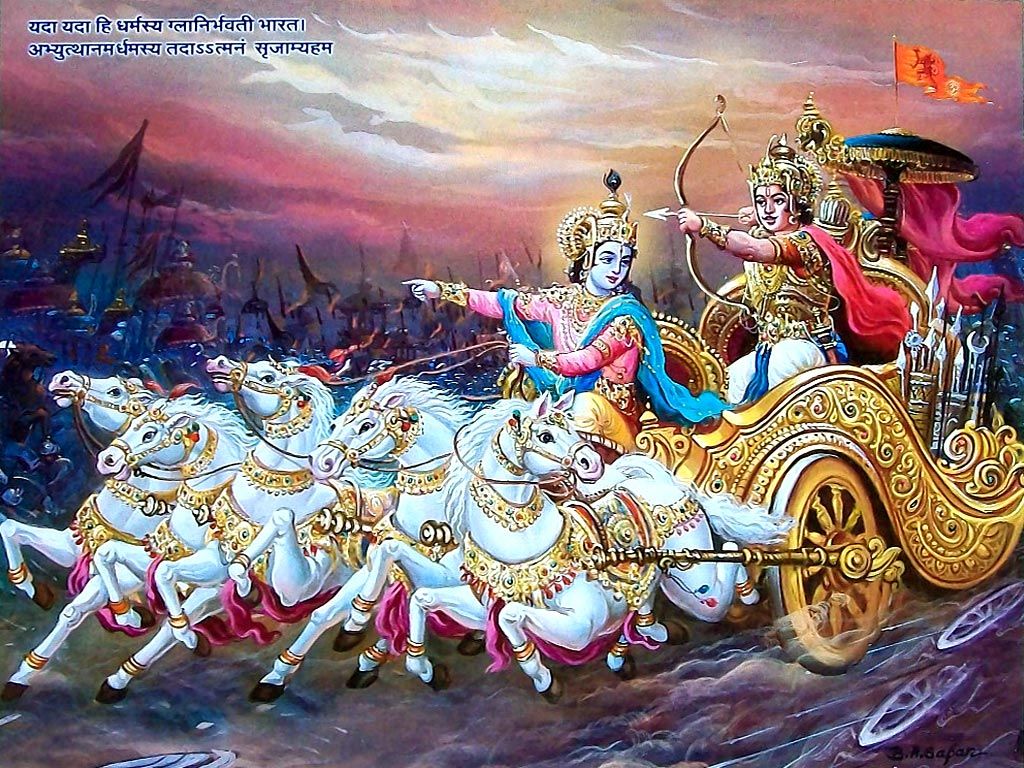The Philosophy of the Bhagavadgita - 8.6 Swami Krishnananda.
-----------------------------------------------
Monday, January 18, 2021. 07:12. AM.
Chapter 8: The Yoga of Action-6.
----------------------------------------------
Religions tell us that we should worship gods, and that the gods will bless us. This blessing is nothing but the union of our lower consciousness with the higher, transcendent one, which includes our present finitude as well as its finite environment. Here is the philosophical significance behind the doctrine of yajna propounded in a few verses of the Third Chapter of the Bhagavadgita. This action, this Yoga of the performance of duty takes off the edge of sorrow in one’s life, because here one does action as a dedication rather than as a means to an ulterior end.
Again, here, we are brought face to face with an understanding of the nature of the fruits of action. There is no such thing as fruit of action in the sense we conceive it. If action is selfishly performed, the fruit thereof shall be a reaction, and every such reaction of an action is unpleasant in the end, for every selfish action is an interference with the balance of things, the harmony that exists amongst the objects. And Nature as a whole tries to maintain its equilibrium; it cannot tolerate any kind of interference from its parts. Nature resents all interference, and the moment we touch it in the form of an action selfishly motivated, it expresses its resentment in the form of a reaction that recoils upon us as the karma-phala, or the fruit of the action, which is grief and rebirth. We suffer due to our own deeds.
But it is not necessary that all our deeds should bring only sorrow. We can also be happy, and our deeds can be vehicles in which we can ride over the finitude of ourselves and rise above to the higher realm of the Deity which is situated beyond the ken of our sensory perception, and which is a greater reality than the imagined reality of the state of our present finitude.
The senses move towards the objects, and this movement of the senses is usually regarded by us as action or activity. We imagine that we do something. We have always a feeling that we are doing something and we have to do something because of an absence of right knowledge, samkhya, the wisdom that should guide all activity. The senses move towards the objects outside not because of a real desire for the objects as such, but because of an inherent affinity existing between the senses and the objects. Outwardly it appears as if we are desiring the object, but inwardly the intention of Nature is different. Only, we are unconscious of this inward intention of the movement of the senses in space and time.
There are the three gunas, or properties, of what is called prakriti—sattva, rajas and tamas. These gunas are the building bricks of everything in the universe, whether in our own self or outside in the world. All these five elements—earth, water, fire, air and ether—all the physical objects in the world, and everything that we are in ourselves in the physical body, even our mind and the sense organs, are constituted of sattva, rajas, and tamas. These properties, which are the constituents of Nature as a whole, individually as well as externally, try to maintain a balance among themselves. This is the reason why the senses within, which are the products of the three gunas, try to commingle with the very same gunas present as objects outside.
To be continued .....
=======================================================================





Comments
Post a Comment